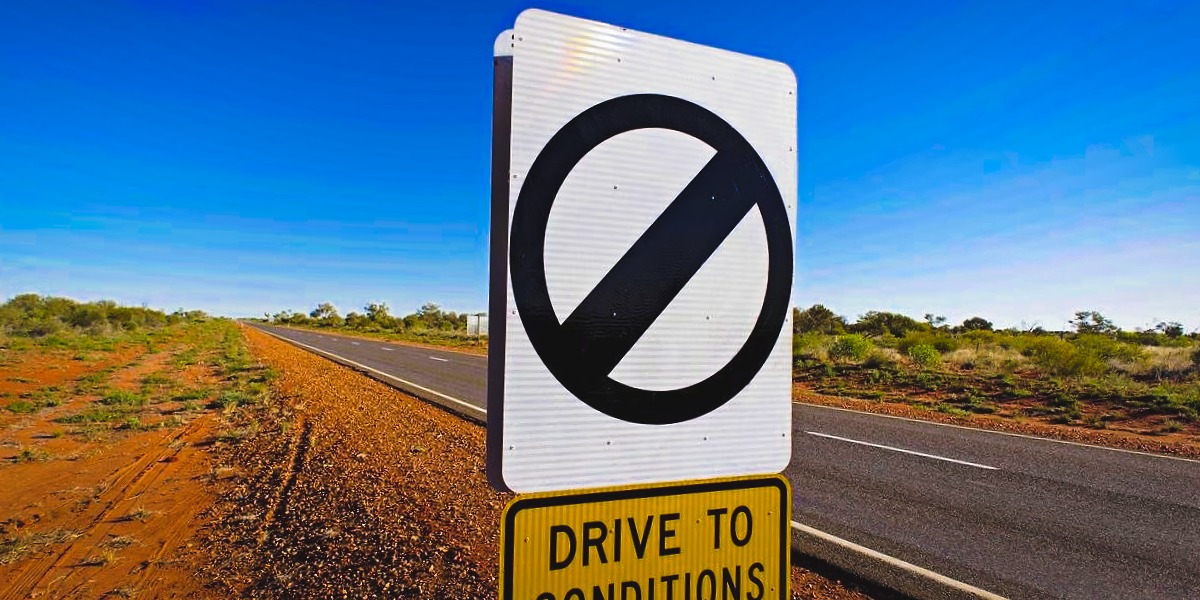Shadow Minister for Infrastructure, Transport and Regional Development, Senator Bridget McKenzie, says the Federal Government has quietly abandoned its proposal to cut default speed limits on unsigned country roads, following overwhelming backlash from regional Australia.
Senator McKenzie, who has been a vocal critic of the proposal since it was released for consultation, said the retreat was an admission that Labor had failed to address the real issue of dangerous and deteriorating regional roads.
“Labor has wasted months pushing a policy that punished regional motorists instead of repairing the roads that endanger them.”
The proposal, released through a Regulatory Impact Analysis by the Department of Infrastructure, suggested reducing the default speed limit on open, unsigned roads outside built-up areas from 100 km/h to 90, 80, or even 70 km/h. The plan triggered widespread opposition across the country, with more than 11,000 submissions rejecting the idea. Critics argued the measure was a “lazy” substitute for proper investment in regional road maintenance, pointing to the worsening road toll and the poor condition of rural roads.
Member for Parkes Jamie Chaffey said the decision to drop the plan was an admission the Government had failed to deal with the real issue of fixing the roads.
“This plan was a diversion from the fact that road funding has fallen a long way behind what is needed to maintain regional roads,” Mr Chaffey said.
“Safety issues cannot be addressed by asking people to slow down to drive around potholes.”
“Regional communities, local councils, and Liberal and National MPs have told the Albanese Labor Government in no uncertain terms they do not want this plan, and common sense has finally prevailed.”
Farmers were among the strongest opponents of the Federal proposal. NSW Farmers President Xavier Martin said the plan was a “straw man” solution that failed to address the real drivers of regional road trauma.
“Band aid solutions won’t fix the problem of crumbling roads and bridges, or deal with the growing road toll here in the regions,” Mr Martin said.
“Fixing the real driver of road trauma – that is, our ruined roads – is what will make a real difference. We need to get people home safely each day, and farmers need to be able to get their food and fibre to market safely as well.”
NSW Regional Transport and Roads Minister Jenny Aitchison had made it clear in her response the state government would not support any blanket reduction in rural speed limits. She was joined with other state roads ministers in communicating that view to Minister King at a meeting of the commonwleath and state roads ministers last week, leading to the policy withdrawal.
“A lower speed limit means longer trips and less time in the day for family, community and work. It would increase the isolation that many country people experience, which has its own negative health impacts,” Mr Butler said.
Earlier, Member for Barwon Roy Butler had asked a question in the NSW Parliament about the issue, desvribing the proposal as having “an unacceptable impact on the daily lives of country people”.
Mr Chaffey said the final decision was a win for the regions, but the fight for safer roads was far from over.
“Axing the speed-limit plan is a victory for regional Australia, but road safety won’t improve until the Albanese Government invests in the roads themselves. It’s time they got on with the task of making roads safer by fixing them and filling the potholes,” he said.
Got something you want to say about this story? Have your say on our opinion and comment hub, New England Times Engage

